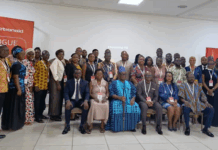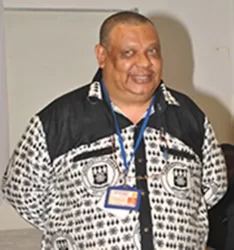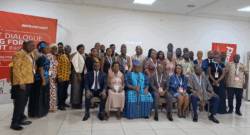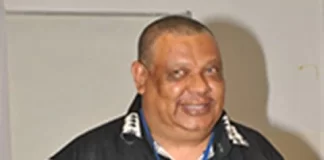By Juliet ETEFE
The African Climate Reality Project (ACRP) through its Fair Finance School has advocated sustainable financing for climate solutions.
The two days programme held in Accra equipped young climate leaders with the knowledge and skills necessary to understand the operations of Development Finance Institutions (DFIs) and their crucial role in financing developmental projects.
Gathering grassroots activists, academics, and civil society organisations (CSOs), participants were also equipped with skills to advocate for fair financing, ensuring that financing conditions are just and beneficial.
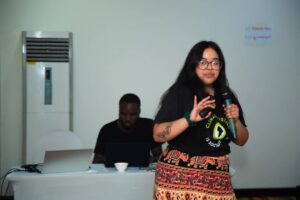
In an interview with the B&FT Courtney Morgan, Senior Campaigner at ACRP stressed the importance of active participation and strategic questioning in financial discussions to ensure that climate funds are just and effectively utilised to benefit communities.
“We need to understand why the financing is coming, how it will be disbursed, and the motivation behind it. This understanding allows us to decide whether we want such funding, especially if it comes with harmful conditions like high-interest loans,” she said.

She also emphasised the critical role of grassroots activists, academics, and civil society in shaping climate finance.
She highlighted the necessity for these groups to understand and engage with climate finance on their terms, moving beyond mere numbers and systems.

Ms. Morgan also underscored the significance of youth engagement in climate action, particularly in Africa, where the young population is both the innovative and energetic.
“In Africa, where the largest population is young people, these are the individuals with the energy for action and the most innovative solutions for climate action. They are committed, know what they envision for their countries, and if they are the leaders of tomorrow, we want to empower them to be the leaders of today,” she noted.

She reiterated that empowering young people to lead today is crucial, as they possess the commitment and vision needed for impactful climate solutions.
Recognising that many funds are available for climate initiatives, Ms. Morgan pointed out the importance of activists being present in key discussions and clearly articulating community needs to leverage these opportunities.
The Senior Campaigner acknowledged the continent’s disproportionate suffering from climate impacts despite its minimal contribution to the crisis and called for increased climate finance support from the global north, emphasising that African communities are inherently resilient and capable of finding context-specific solutions.

For his part Executive Coordinator of the Strategic Youth Network for Development (SYND) Chibeze Ezekiel encouraged young people to see environmental issues as business opportunities.
He said this while encouraging young leaders in the space to approach climate change beyond activistism.
He said by developing business models that address environmental issues while generating economic returns, they can create sustainable livelihoods and contribute to national development.

He explained that this approach not only addresses environmental issues but also tackles youth unemployment, creating a vibrant ecosystem of young entrepreneurs driving economic growth while combating climate change.
This dual approach ensures that their efforts in climate action are impactful and financially viable, fostering a new generation of environmentally conscious business leaders.
Mr. Ezekiel further urged governments to facilitate an enabling environment where young people can showcase their innovations, particularly in environmental sustainability.
He suggests organising national youth trade fairs to connect young entrepreneurs with potential investors and collaborators, thereby amplifying their impact.



